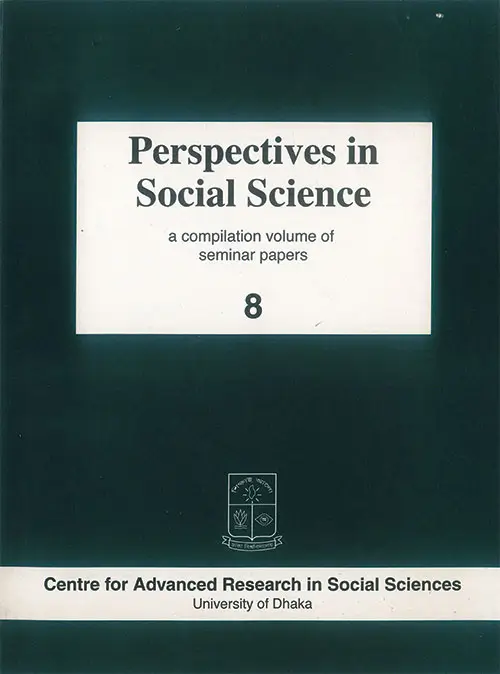
Perspectives in Social Science
Volume 8 July 2005
Perspectives in Social Science
How to Avoid Nuclear War Between India and Pakistan
Perspectives in Social Science
Volume 8 July 2005
DOI:
ISSN :
Abstract
The after-effects of nuclear tests by India and Pakistan in May 1998 have confirmed the validity of the above statement by Sir Edward Grey, the then British Foreign Secretary. India tested its nuclear bombs on 11 May 1998. A week later LK Advani, India's home affairs Minister said:
"Testing the bomb has brought about a qualitatively new stage in Indo-Pakistan relations.... it signifies India's resolve to deal firmly and strongly with Pakistan's hostile designs and activities in Kashmir."
Mumtaz Rathur, former Prime Minister of Azad Kashmir (Pakistani sector of Kashmir) offered his prognosis to the Independent "I think if war starts, it will not be an ordinary war but an atomic war, and will spoil the peace of the whole region".
In view of the outstanding dispute over Kashmir, dangers of nuclear war between India and Pakistan are very real. The deterrent theory that is believed to have preserved the peace between the East and the West is unlikely to work there. Pakistan may well feel that in the event of a conflict if it does not resort to the 'first strike', it may not have a chance for the 'second strike' as its entire defense structure, including its nuclear capability, is liable to be destroyed by India's 'first strike'. Consequently, the chances of miscalculation by the parties are real. The grim reality of miscalculation by nuclear powers was brought home by the revelation made known in the late 1980s by joint US and Soviet enquiries into the Cuban missile crisis of October 1962, when 30 Soviet ships, some carrying missiles and nuclear warheads approached America's quarantine line off the coast of Cuba. Even President Kennedy did not know how close the world came to nuclear war. Each side had seriously misjudged the likely response of the other.
Krushchev believed that the United States would tolerate the presence in Cuba of nuclear missiles able to hit American cities. Similarly Kennedy who was under pressure from Congressional leaders and the majority of his advisers, including the service chiefs, to launch an air strike as a prelude to an invasion by 180,000 American troops, mistakenly believed that no nuclear warheads had reached the island.
Had Krushchev not retreated, Kennedy might have made the most costly miscalculation in human history in addition to some 70 warheads for the ground-
